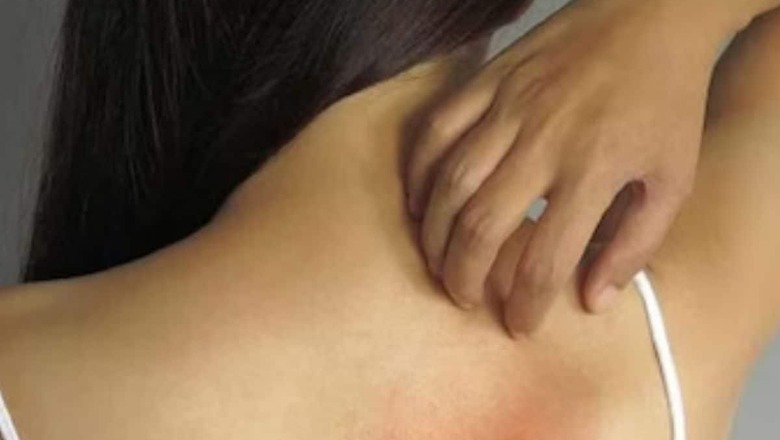
views
With the increasing temperatures, the arrival of summer brings along heat and perspiration, which often leads to the occurrence of rashes. Although many individuals perceive these rashes as a common skin issue, they can actually be indicative of various skin conditions, including eczema. Also known as atopic dermatitis, eczema is a skin condition characterised by itchy, red, dry, and irritated skin. The specific type of eczema a person has determines the nature and location of the rash on their body. While it typically manifests in infancy or early childhood and may persist into adulthood, eczema can affect individuals of any age.
Various symptoms include
- Dry and fissured skin.
- Persistent itchiness (pruritus).
- Rash appearing on swollen skin, with color variation based on individual skin tone.
- Presence of small, raised bumps specifically on brown or Black skin.
- Oozing and formation of crusts.
- Thickening of the skin in affected areas.
- Darkening of the skin around the eyes.
- Development of raw and sensitive skin due to scratching.
While the right treatment for eczema will depend on the type and severity here are some ways by which you can treat it at home:
- Coconut oilIt acts as a natural moisturizer and possesses antibacterial properties that can reduce staph bacteria, vital for preventing infections in eczema. Use virgin or cold-pressed coconut oil without chemicals for topical application.
- Acupuncture and acupressureThis technique involves inserting fine needles at specific points to manipulate energy flow, potentially providing itch relief. Similarly, acupressure applies finger and hand pressure instead of needles and may offer relief for itchy skin related to eczema, as per preliminary research.
- Vitamin D supplementsMultiple studies suggest that vitamin D supplementation can potentially reduce eczema flare-ups. Vitamin D improves the immune system and skin barrier function, making it logical for individuals with vitamin D deficiency to be more prone to eczema. However, it is important to consult a doctor before using these supplements.
- Sunflower oilIt has been found to safeguard the skin’s outer layer, promoting moisture retention and preventing bacterial entry. It also moisturizes the skin, potentially reducing itching and inflammation. Apply undiluted sunflower oil on damp skin, ideally after bathing.

















Comments
0 comment